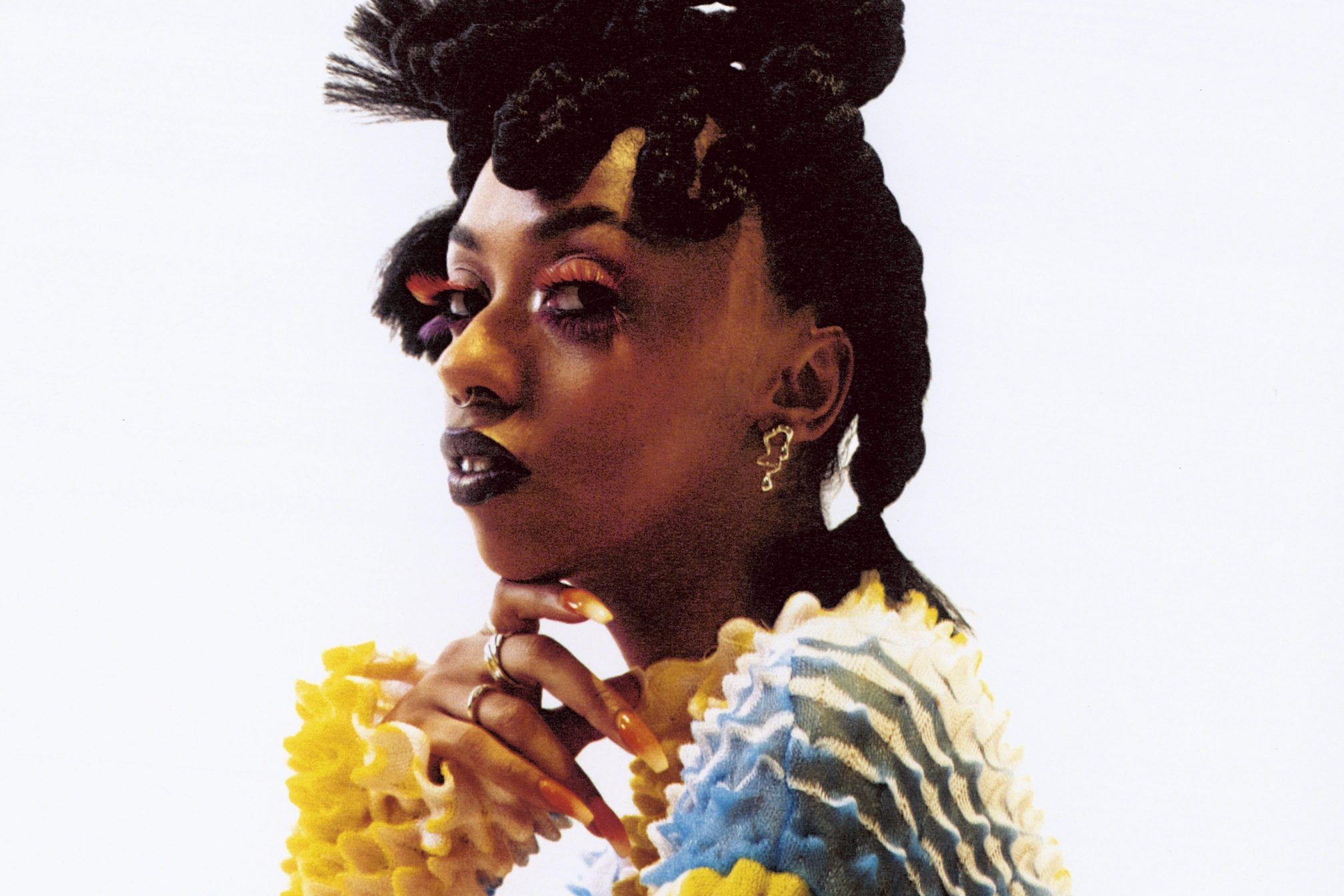 Features
Features
Flying the junglist flag: Nia Archives is leading jungle's new era
Nia Archives is laying her emotions on the dancefloor with her future classics, championing the history of Black music while blazing a trail as the junglist that generations of old heads and new ravers have been waiting for to carry the torch
A set of fluffy dice printed with the Jamaican flag swing side to side from the front mirror of a tricked out Uber as the deep bass of Cocoa Tea's 1987 reggae hit ‘Young Lover’ reverberates from the back. I crack the window and let the hook float down Hackney Road as Nia Archives flips the mood of the sample on '18 & Over' from crystalline synth to a pulse-racing pace and an iconic call-to-arms commands: "Give me a motherfucking breakbeat!" The driver turns up the volume and gives me a nod of approval. "When you see that young lady who made this tune, tell her, big up from one junglist to another."
I'm on my way to meet the 22-year-old Bradford-born, West Indian multi-talent at The Standard hotel in London, the city where she's now based. Upon arrival, Nia Archives is sitting at a velvet corner booth in the lounge by a crackling fireplace framed by her espresso curls and a low-key peroxide streak. It's the day before she drops her hugely anticipated sophomore EP ‘Forbidden Feelingz’ on her own label HIJINXX and a week since she picked up the Best Producer prize at the BandLab NME Awards. "I'm letting it be known: this is the summer of jungle," she says, flashing a megawatt smile.
Most would be riding high off the newfound fame, but Nia is focused, riffing about getting down to business making new music, dream collaborations with M.I.A. and Grace Jones, composing a jungle heritage album, and hitting the road with a live band or orchestra to assert the genre's place within arenas, continuing the work of originators such as Fabio & Grooverider and their collaboration with The Outlook Orchestra, Roni Size & Reprazent's legendary 2009 live show alongside composer William Goodchild and The Emerald Ensemble, and Goldie's performances with The Heritage Orchestra at the Royal Festival Hall and Ronnie Scott's.
Read this next: The 20 best jungle mixes you can listen to online
She reels off festival slots she's already locked down, such as Glastonbury, Reading & Leeds, Outlook in Croatia, All Points East, a back-to-back set with Roni Size at Valley Fest, and a stint in Australia. Then arrives at the topic of the aforementioned award. “From the start of my career, I always get questioned, 'Who produces your stuff? Who's behind these beats?' Honestly, no one would ask me that if I was male. I'm so gassed that I was nominated for Best Producer rather than Best Artist or Newcomer," she beams. "This whole project, ‘Forbidden Feelingz’, has been about me proving that I'm actually a producer! So when I won, it all meant so much to me. It was just such a moment. When I got off the stage, I sobbed my eyes out. I'm really happy, and it all feels natural, but I can't deny it's been a mad one since November 2021."
It's a trip to think it was just over a year ago that Nia released her debut EP, the lo-fi melodic jungle masterpiece ‘Headz Gone West’. I'd been a fan from her intoxicating breakout single, ‘Sober Feels’, in 2020, but the first time I witnessed Nia in her element was a couple of months before it all took off.
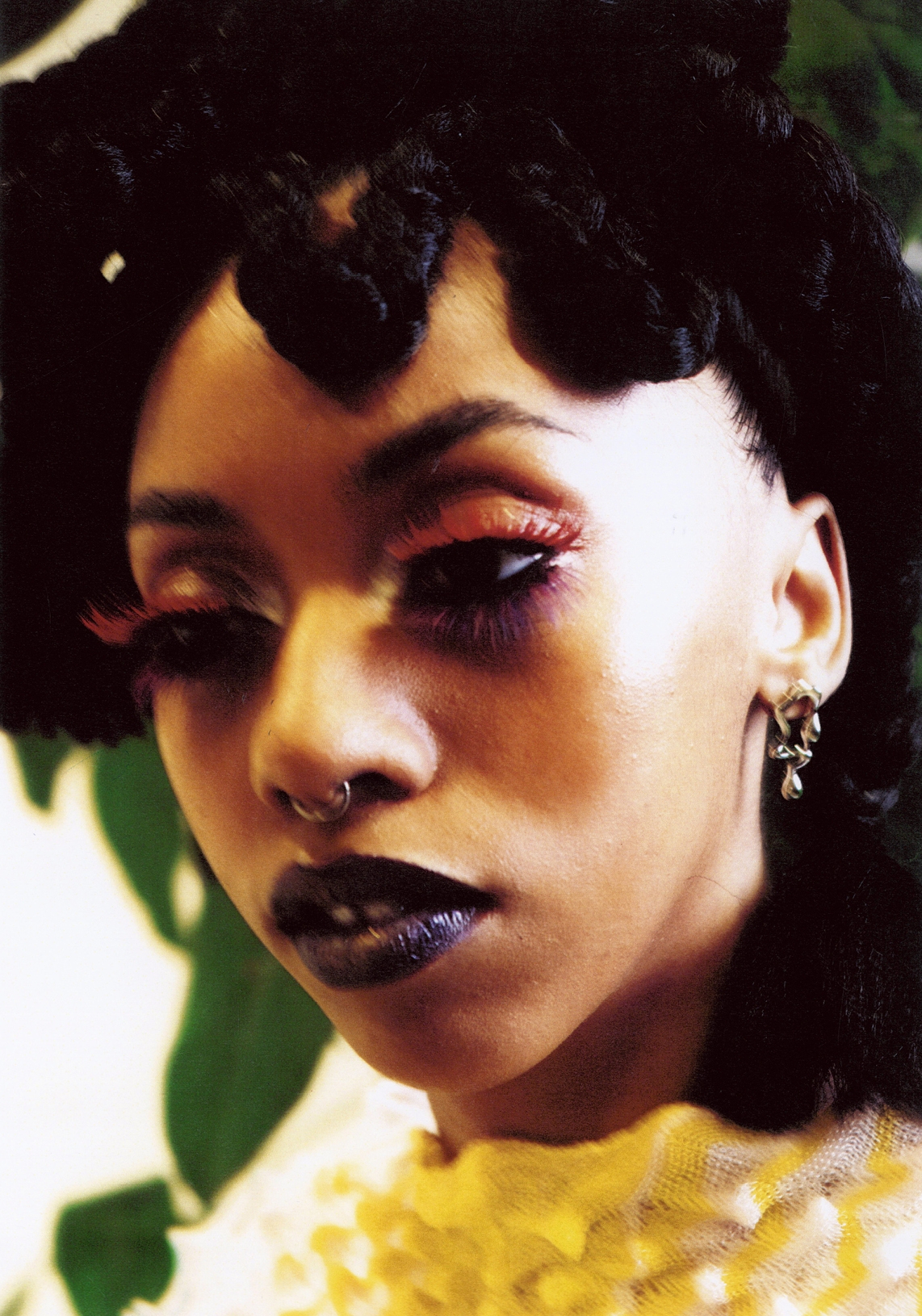
Nia Archives was cooking up a storm behind the decks at SHERELLE X Boiler Room's 'ICON' launch, drenched in acid green spotlights and wearing a T-shirt featuring the evening's headliner, SHERELLE. Rain-pelted punters piled in and swarmed the DJ booth among a slew of A&Rs, camera crew, press and fellow selectors. The saccharine hooks of her self-produced singles swirled like smoke. She flexed her dance moves while toasting like a seasoned soundsystem MC: churning loose words and phrases like honey over bouldering basslines and breaks that swerved from liquid to precision-tracked. Witnessing the dexterity of Nia Archives skill set and musical prowess in the flesh blew my fucking mind.
I wouldn't be the only one to wax poetic. Nia's set was the talking point in the smoking area, the toilets and the green room. SHERELLE's parting words on the night were: "That's the girl everyone should be interviewing. That's the future of jungle."
In the months that followed, Nia Archives hype would continue to gain traction. She clocked co-signs from jungle godfathers Shy FX, Congo Natty and Roni Size. She then racked up a spectrum of fans as diverse as her sonic inspirations and aesthetic, including Elton John, who played '18 & Over' on his Apple Music show.
Read this next: The 12 best mid-90s jungle track
As she closed out 2021, Nia announced a new monthly residency on Rinse FM, while her debut EP ‘Headz Gone West’ clocked Spotify streams in the millions. She was tipped across the music industry as one to watch, including by BBC Radio 1 Dance as a 'Future Star' and Spotify as the 'Our Generation' cover star. Since then, her meteoric trajectory that shows no signs of slowing. "It might seem like I've been fast-tracked, but I'm not new to this," she says. "I've been producing for five years and surrounded by music my whole life."
Nia grew up around soundsystems and was raised on a diet of Roots Manuva, reggae, rap, rocksteady, and disco, served up via her grandmother from an early age. "My Nana was a proper muso. In the ‘70s, she and my four aunties had big afros and listened to Shalamar and lovers rock. They were known as the ‘Bradford 5’ when they would go out, like the Jackson 5," Nia laughs. "We would sit on her bed and listen to loads of different music, and my Nana was definitely my intro to jungle. I didn't know what the music was even called until I was a teenager, but I loved the vibe. The distorted bass and drums make me feel a type of way."

As her artist name indicates, Nia Archives is interested in exploring the past. From the outset, she was intrinsically linked to the music of her dual heritage, being both British and Jamaican, and a relentless history buff. "I think it's important to know the history of anything that you're doing that you're passionate about. I love music history, I did it for a GCSE, and I became obsessed with knowing about my culture."
Nia was taught Black history in a Saturday school run by her Nana and attended church on Sundays. "Not to gas myself too much, but I think I'm naturally gifted with harmonies. I can hear them straight away, I don't have to work them out, and I think that comes from being in church. From four-years-old, I heard all these powerful voices together in different layers of harmonies, and that's how I started singing."
Naturally gifted, Nia joined the school orchestra and choir. She taught herself cornet and piano on a broken organ belonging to her stepdad. He was a rapper and producer who let her try out his production software Logic from time to time.
Read this next: How young artists are transforming drum 'n' bass
"I was actually on his album when I was 10-years-old doing this spoken word bit! You can hear my childhood voice on it!" Nia reveals. "I've been going through my archives a lot lately, and the other day I found a beat on my old SoundCloud that I made when I was 12," she shares, before adding with a laugh: "It's really bad. In fact, it's terrible."
While Nia was honing her music skills, she was also immersed in her grandmother's collection of books. "When I was a kid, I was a total bookworm. My best subject was English, which explains my songwriting, and I actually started a book club at school! I was a proper geek. In Year Three, there was a lesson that was like 'talk about your favourite celebrity'. Everyone talked about Wayne Rooney and all the basic people, but I said Rosa Parks when it came to me. My teacher started crying because she didn't expect it," Nia says. "I grew up in Bradford, where the EDL had a strong presence. I went to school in a white area. In high school, there were only five of us who were Black, including my brother and me, so I dealt with a lot of racism. I had braids once when I was 14 and I remember I got bullied so much that I never did it again. I got exposed to so much hate that there were times when I didn't love myself and felt ashamed of being Black as a kid. I felt embarrassed. My best friend Fatima and I grew up thinking we were so ugly, and even today, I sometimes still have to rewire myself. It's incredible how all these different elements growing up, good and bad, eventually come together to shape who you are. I think that's even more so why I proudly shout out my culture now."
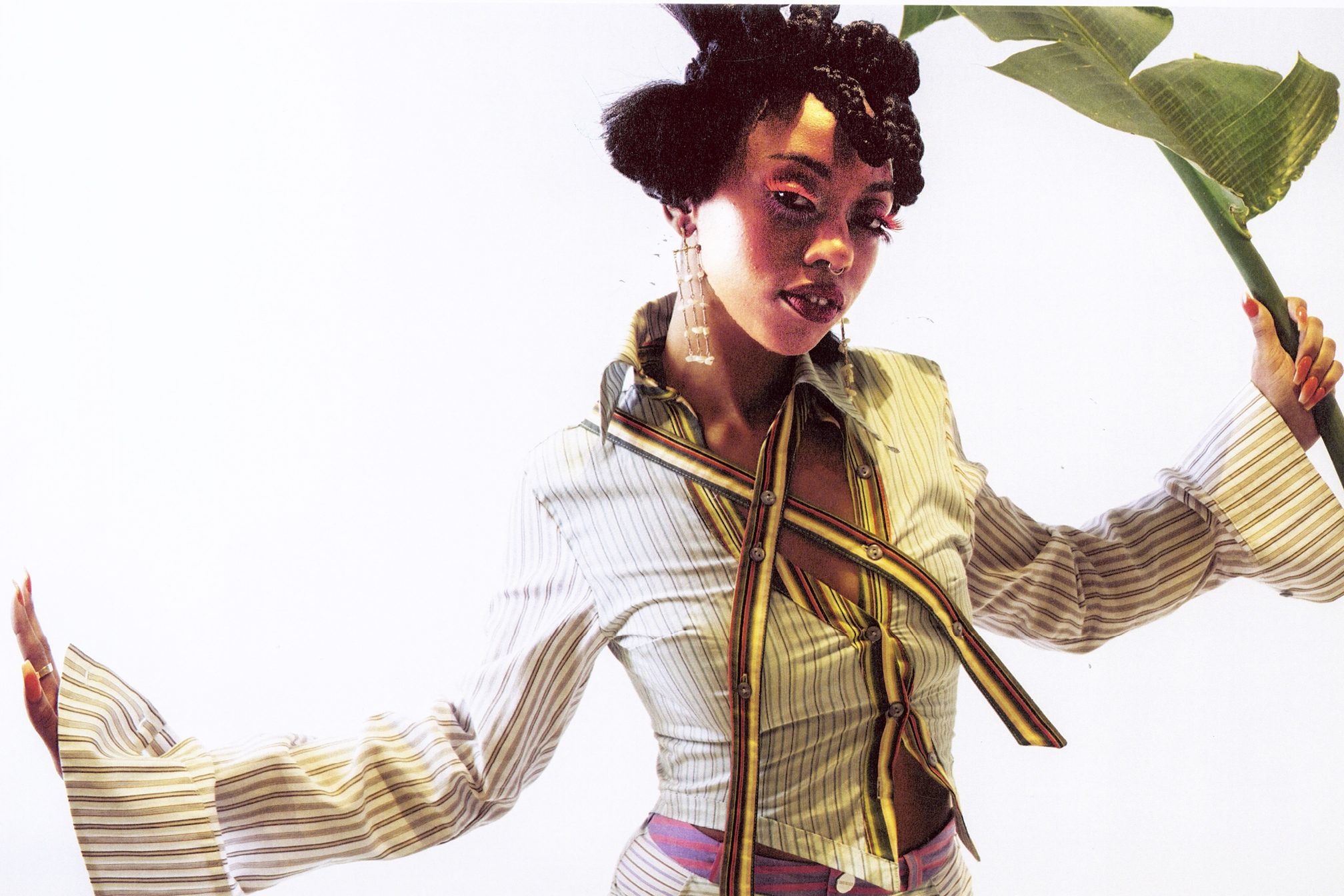
In April, Nia published a handwritten letter criticising The Music of Black Origin Awards (MOBOs) for their lack of representation of electronic and dance acts. "I went to the MOBOs when I was a teenager. I got some free tickets, and I just loved it. But in recent years, I've been thinking that the last Black electronic artist they supported was Goldie in the ‘90s, over 25 years ago, before I was even born. That's crazy! That feeds into erasing the history and the gentrification that's gone on with so many genres being whitewashed. House comes from gay Black men and female vocal powerhouses who featured on records that they still don't get credited for. If you're celebrating Black music, you should! Black music isn't just R&B, drill and rap. There are so many different genres and Black artists that deserve support. Anz, TSHA, Tim Reaper, and SHERELLE, I can literally go on."
She addressed the awards ceremony by saying: "Once upon a time, you championed Black dance artists and had categories such as Best Dance Act, Best Jungle Act and Best Garage Act, but by the early 2000s, these categories ceased to exist." Adding, "I can't help but feel that your lack of support has been massively regressive for the Black community and representation of these genres and the artists operating within them." Before her final statement: "Times are changing - what side of history do you want to be on?"
Nia feels strongly about improving the music scene because it's been crucial for her own growth. By 16-years-old, she knew where she needed to be: packing her bags, finding a room in a hostel in Manchester, and not looking back. "I started going to parties and raves and clubbing by myself. I wasn't supposed to be going out because I was still pretty young, but I didn't know anyone there. I wanted to meet people and make friends, and I met loads socialising that way."
Read this next: 19 90s drum 'n' bass and jungle DJs still at the top of their game
When I tell Nia about my stint podium dancing in clubs at the same age and how much of a positive and empowering impact it had on me, she lights up. "Clubbing impacted me massively and gave me so much confidence. It's one of the most freeing things solo. You don't have to get a drink when everyone else wants to or say hi to whoever. On your own, you can just dance and open yourself up to all these amazing experiences."
Despite her fierce independence, Nia didn't need long to find a crew of drum ‘n’ bass loving mates who inspired her to cut her teeth as a vocalist at underground basement and squat parties. "I never thought I could sing because I didn't really get encouraged at home. My mom is tone-deaf, and no one told me I could. Secondly, I was surrounded by all these amazing gospel singers at church with Adele type voices. When I compared myself to them, I didn't think that highly of my voice. But when I moved to Manchester, we started having little cyphers and stuff. That's when I jumped on the mic."
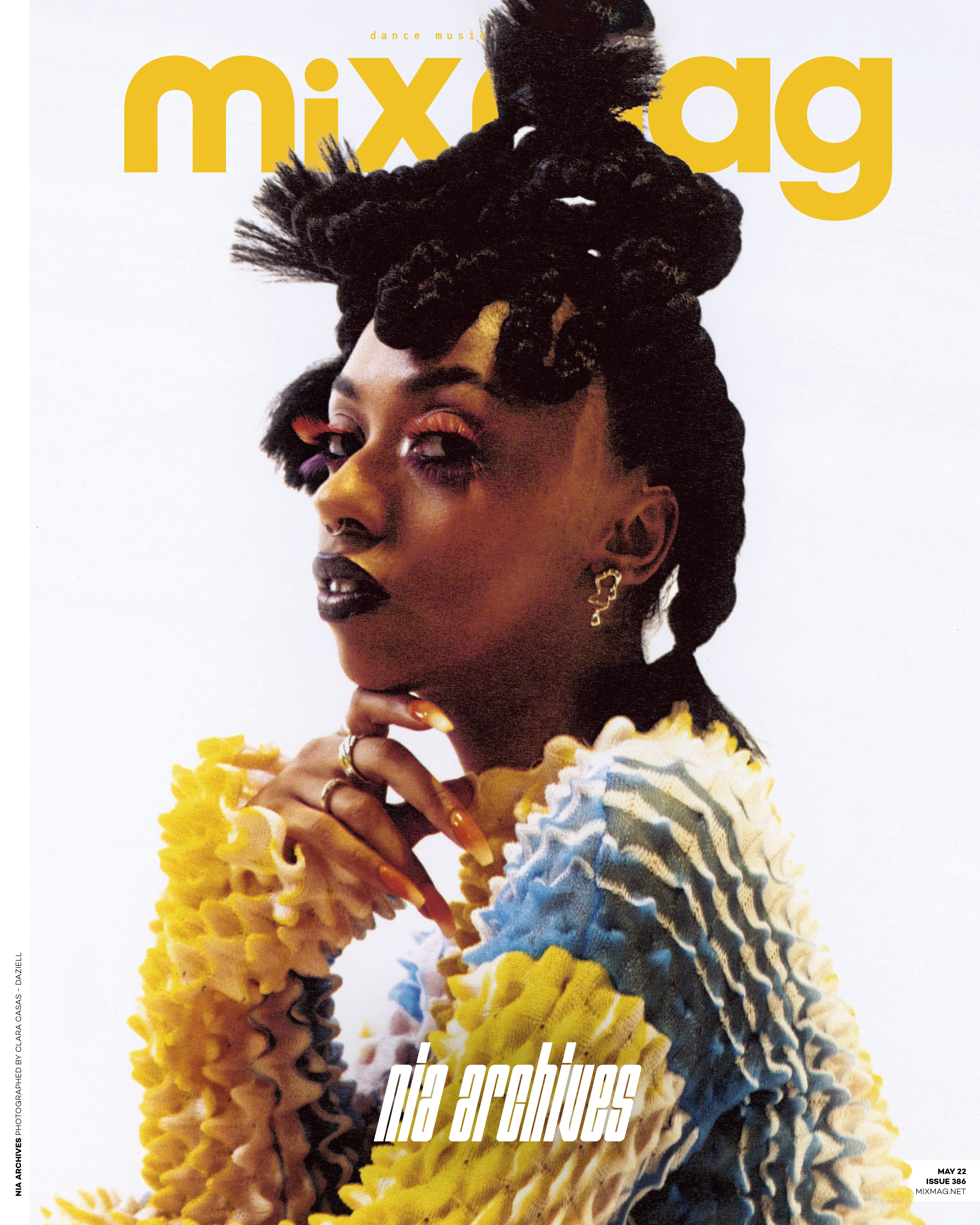
Nia downloaded a cracked version of Logic, taught herself how to produce from YouTube tutorials, and started making music under her old SoundCloud alias. "I was making boom-bap, and I didn't even know what a metronome was, so everything I was making was out of time," she says.
She had taken her vocals to work with producers, before going it alone. "They were being long, and I realised that they didn't care about what I was doing as much as I did. I learnt that no one else will believe in you as much as you do."
As a profound and articulate lyricist, Nia confronts visceral memories and lays her feelings bare on the dancefloor. "I had all these emotions running through me. I didn't want to do therapy because I'd tried every type, and it didn't work for me. Music was the one thing that I could do to get my emotions out in a controlled and safe way, and that made me feel good about it. I could take something so horrible, and that felt so bad and make something so nice and beautiful with it so that I've got something from having all these bad emotions."
At 16, Nia wrote 'Crossroads', the track which she credits as her most personal. "I made an uncut version on a hip hop beat before putting it on my debut EP ‘Headz Gone West’. Everyone thinks it's about a guy, but it's actually about my relationship with my mum, coming to a crossroads in my life, and not knowing which way to go."
Read this next: Nia Archives calls out MOBO Awards for lack of dance and electronic category
Manchester had become the first place that felt like home. The city had stolen a piece of her heart and reshaped the melancholic backbone, escapism and BPMs of Nia's music. "My music was all really sad and felt too vulnerable for me. I transitioned from making this slow, depressing boom bap music to making double-time because I wanted to dance to my music. It could still be emotional, but I wanted it to be more like a 'cry in the club' kinda vibe. That's me to a tee! Hip hop is the predecessor of jungle, so it all actually made sense," she reflects.
Despite Manchester's diversity, Nia still felt pressure to fit in and stifle her individuality. "Up North, you can't express yourself like London or stand out. I've always been a bit odd, strange, and a bit of a weirdo, and I like that."
In 2019, she tenaciously travelled to London despite a heap of naysayers saying she couldn't make it. A year later she was accepted as part of the EQ50 initiative mentored by DJ Flight and taken under the wing of the elders at foundational jungle imprint V Recordings.
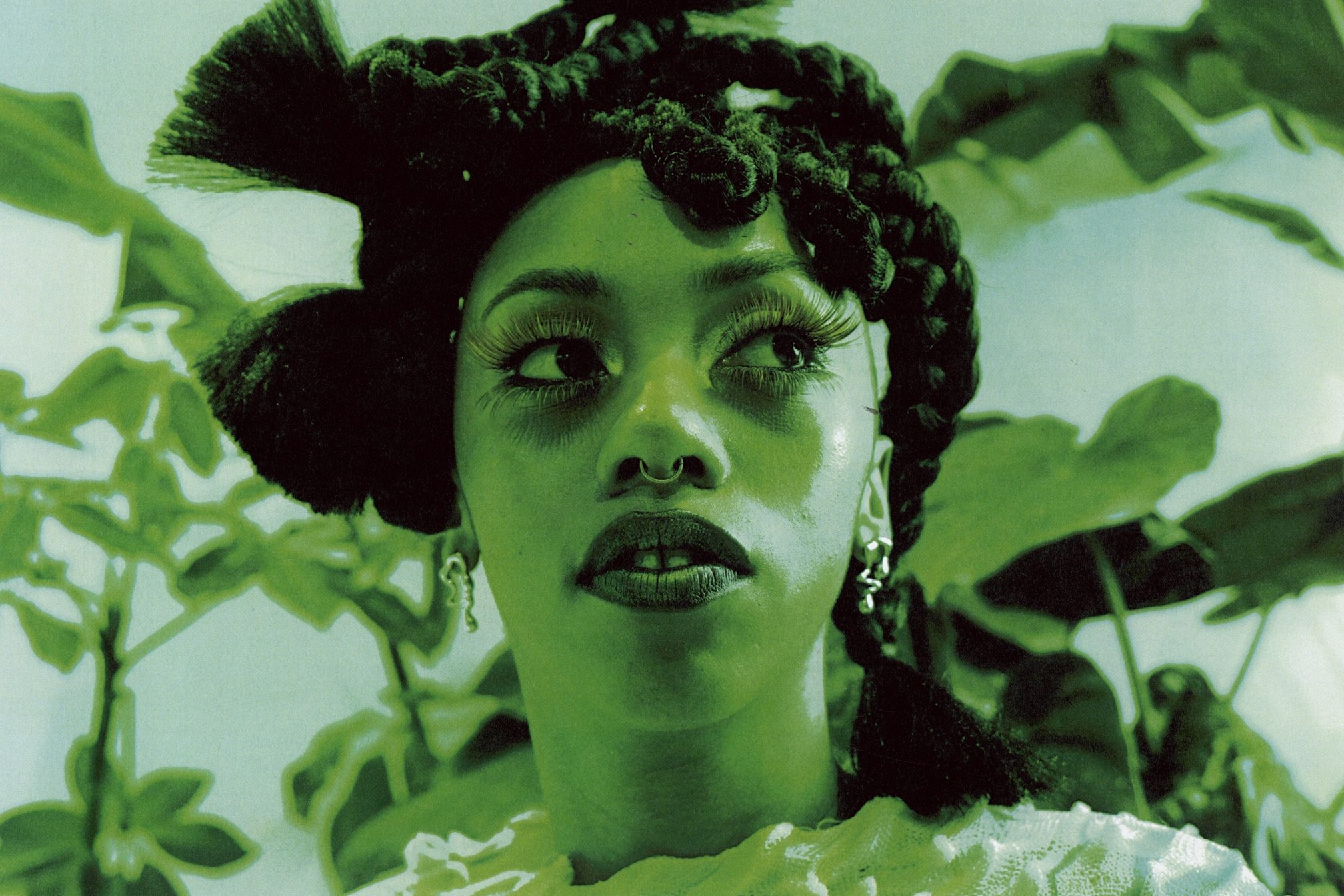
Nia's sonic aesthetic soared to a fever pitch, flexing her capabilities as a producer who could make radio-worthy jungle records and tonne-heavy club music. She took her sun-kissed hooks, soulful lift and diaristic lyrics and stuffed them with nods to junglist culture and its roots with big bass scoops. Her 2020 single 'Sober Feels' caught fire, racking up more than five million streams to date, and soon she was working alongside jungle great Congo Natty, aka Rebel MC, with a remix of Lava La Rue's 'Magpie'.
By 2021 she played her first gig at Manchester International Festival thanks to curator Jamz Supernova. "That was really a full-circle moment. I went to MIF as a punter, so going back and playing as my first ever gig in the city that I love was crazy! It was a good moment. I was so scared because I'd only started DJing three weeks before!" admits Nia. She nailed her breakout performance and continued to evolve her sound and visuals with a DIY approach.
Nia fused her multitude of inspirations ranging from Angela Davis, Kemistry & Storm, Ms. Dynamite, and Burial on a self-made collage of her most revered influences for the cover art for her sophomore EP ‘Forbidden Feelinz’. "I love Burial. I first discovered him in my later teens, but I just felt his music so much more when I moved to London. I listened to ‘Untrue’ the whole winter before COVID, and I felt like I had to be here to truly understand his music. I still have it on rotation regularly."
Read this next: Manchester is the beating heart of new music in the UK
Nia reveals that she wrote an entire Uni assignment on the elusive artist, researching his life heavily, and is on a subreddit where people identify his most obscure samples. "I credit him so much. He's on the EP artwork," she laughs. "It would be a dream of mine to work with him. I really like him because he's so unique and makes music for himself. The way he samples is so specific. For instance, he samples his favourite video games and films that he loves. He's not trying to replicate anyone else, and no one can come close to replicating him. I love that he was actually trying to make garage or jungle, and he failed and made what he made. I think that's so sick. He's left all these little details in his music to find out about him. Essentially, we don't know anything about this guy, we've got two pictures of him, but if you listen to his music, you find so much out about his character. That inspired me to have those same layers of identity in my production."
When it comes to her process, Nia loves the imperfections and refers to them as "happy accidents", explaining: "I don't want everything to be sonically amazing; I think there's character in the imperfections. A lot of music out there sounds so the same because of that. I'm still in a really basic position with how I make music. It's just me and my laptop, using the keys on my computer. I don't have a studio or all this crazy kit, but it works. I think it's good because the limitations force you to be more creative. If I had like 1000 plug-ins, I think it'd be too much for me to look at. But because I have basic stuff, I just have to make the best of what I got. Part of being creative is problem-solving and unlocking a cheat code like playing video games."
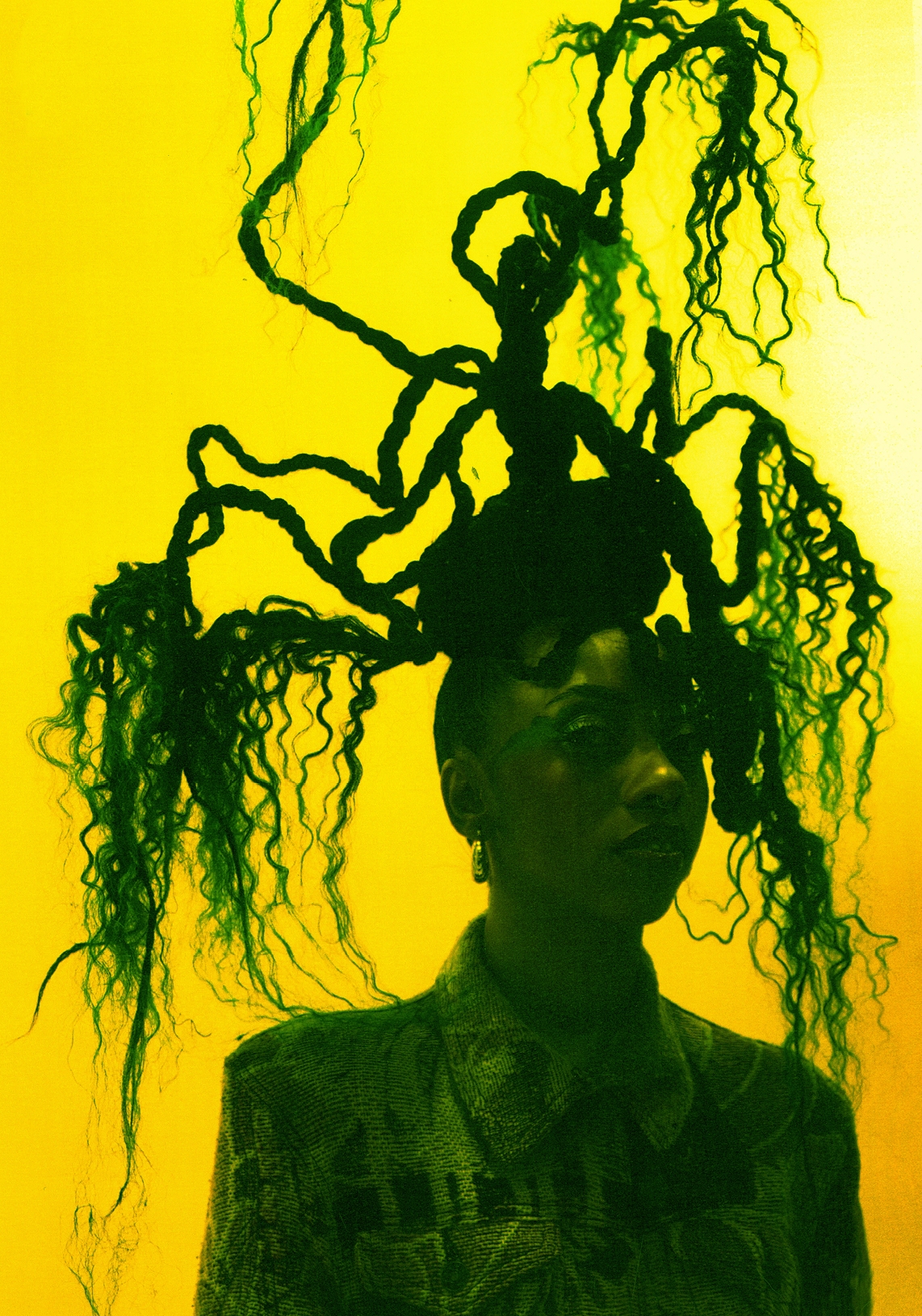
When it comes to enigmatic messages, Nia leaves many for devoted audiophiles embedded in her videos and music. The double bass on 'Luv Like', off her latest project, is a nod to Roni Size & Reprazent's 'Brown Paper Bag'. Lyrically it sounds like an adolescent love song. But Nia explains that the words —"To think that you could ever love someone like me/I'm far from perfection" — are a meditation on the turmoil she's endured with body dysmorphia.
'Forbidden Feelingz', the EP’s title-track, contains a sample that pays homage to her grandmother Liz’s affinity for cowboy films and detective shows. "I love my grandmother Liz so much. I used to stay at her house when I was a kid. She's 96, lived through a World War and grew up in the rough part of downtown Kingston, Jamaica, in the 1930s. She's such a legend, and I loved spending time with and watching TV with her. So I just wanted to sample Colombo as a piece of me to her." All before Nia deploys the gnarly Reese bass that served as a bridge between jungle and its drum 'n' bass fork in the mid-'90s in a way that only she could.
Read this next: Get to know Nia Archives and her 'future classic' take on jungle
"All of my songs are pretty deep; to be honest, you just might not think they are. Even 'Sober Feels'. I know it's the most bait one, but that's a deep song for me. 'Gud Gudbyez' has a trippy hook, but it's about coming down fast from the high of ending relationships. 'Ode 2 Maya Angelou' is extremely emotional for me."
The track samples the Maya Angelou poem Still I Rise, in which she wrote: "You may shoot me with your words, you may cut me with your eyes, you may kill me with your hatefulness, but still, like air, I'll rise!" It's fitting Nia Archives would choose that poem to pay homage to idol whose experiences bear semblance to herself.
"I remember reading I Know Why The Caged Bird Sings as a kid. It resonated with me so deeply. As I got older and studied her more, I realised that I'd experienced similar things that she went through. Yet she was such a powerful woman, and she wasn't just one thing either. She was a dancer, a civil rights activist, and a poet. As a young Black girl, it really impacted me to have someone to look up to like that. I wanted to pay homage to her on this project because it just felt like what I had to do. I have a whole audience who listens to my music who might not know about Black history. I may be their first introduction to it or I might even be inspiring them, so I want to send a powerful message." Nia Archives treats her voice like her samples on an 'Ode 2 Maya Angelou', weaving it around a recording of Angelou as if the two were performing a duet alongside a tectonic quaking in the low-end.
Her sonic signature and ethos operate at maximum levels on ‘Forbidden Feelingz’. It's a celebration of the roots reggae of the Windrush Generation to the vanguard of the hardcore continuum. Her vocals have Erykah Badu's jazzy licks, the candy-sweet impudence of Lily Allen and Nina Simone's sultry cadence. She's emotional, experimental and executing at expert levels.
Nia applies the same complex layering and technique to her videos, which are stylistically influenced by cult filmmakers like Spike Lee, John Singleton, and skateboarding videos. She writes the treatments for all her videos like short films. The music video for '18 & Over' pays homage to UK soundsystem culture and her Jamaican heritage while referencing films like Babylon and The Harder They Come.
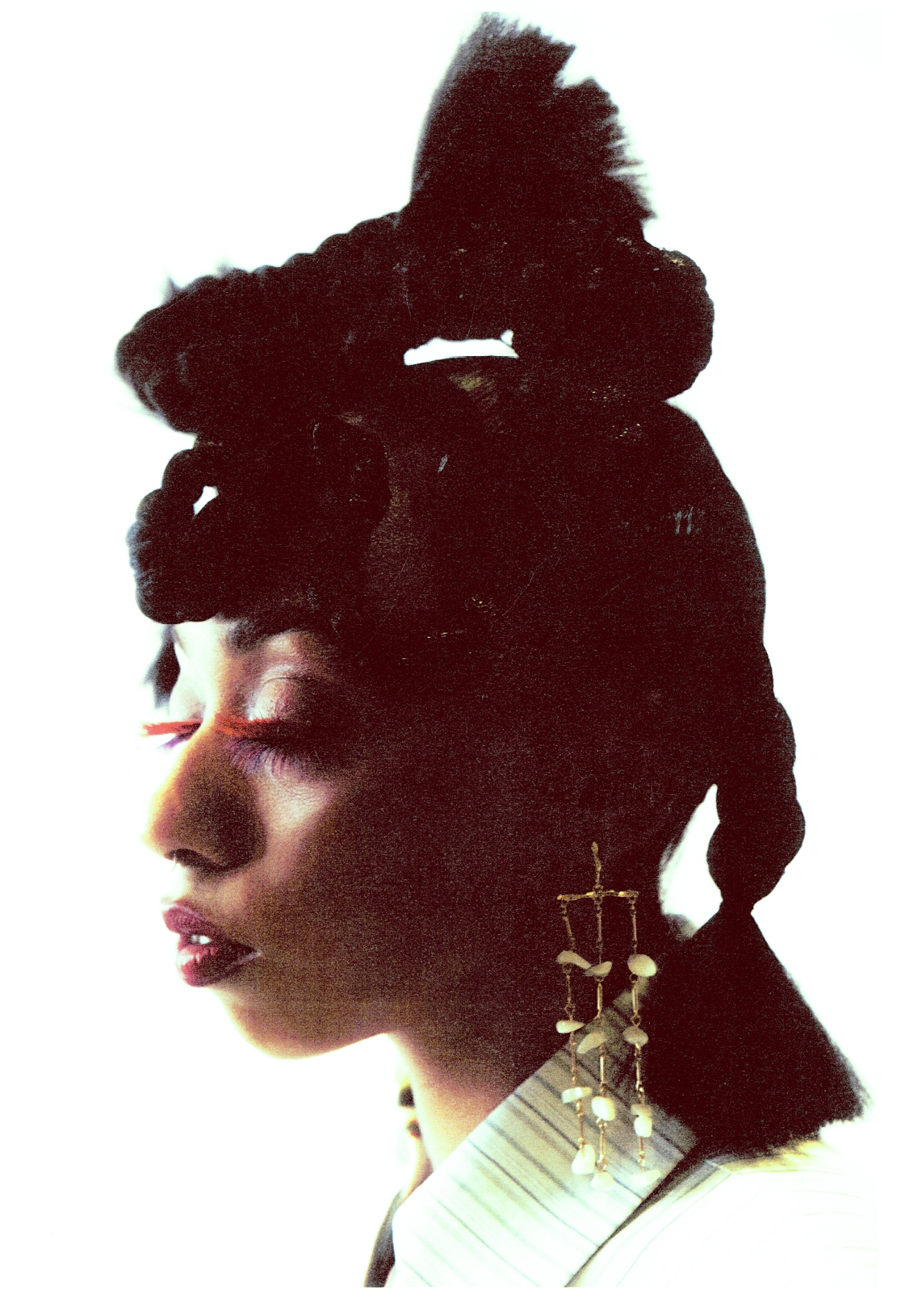
The opening scene finds Nia smoking a cigarette as she begins cycling, giving us a glimpse into her London life with flipbook precision (another DIY element she's applied in the past). "For ‘18 & Over’, I come across my friend Andrew, and we continue on around Hackney until we discover this euphoric soundsystem motive. There we link up with members of the Brighter Days Family to throw the maddest rave. The actual video was shot in my warehouse yard, I thought it would be sick to use that space as no one has ever shot a music video there - meaning it is unique to me. We kept things even more local by asking Hackney native Mark Solution if we could set up his wicked Solution Sound System - it was an honour to feature it in my video."
Nia joined the Hackney-based party/label and creative collective Brighter Days Family in 2020, donating all proceeds/profits from BDF to Hackney Night Shelter as a way of giving back to the community. She is really proud of that and also beams about the positive changes in her fanbase. "At the start there were a lot of guys, but now so many Black girls are coming to my raves. I've never seen that many Black girls in my scene and it inspires me a lot. There are a few girls that I see around at different gigs regularly, and I know their names so I always make sure and say hi," she continues, "I know all the Black women in jungle, I literally know everybody. There's not that many of us, but I hope that will change. White girls come to my gigs too and I love that. Jungle is music of Black origin, and even though the raves back in the day were predominantly Black, they were still so mixed. White, Asian, Latino, gay, straight, anyone was welcome. Jungle is for everyone, and diversity at my shows and among my fans is crucial for me."
Read this next: The 20 best jungle mixes you can listen to online
Outside of her music, her brothers are her world. "I love my brothers. My brother Jay is 20, so there are two years between us. I properly love him, and I can't remember life without him." Nia dedicated her NME Award to her other younger brother Zac. "I always say I feel like he was born so he could teach me how to love. When Zac was born, I felt like my heart started beating. It was the first time that I felt love in my life, and it's so deep. I love him so much."
She confesses that she's written numerous songs for them both but hasn't put them out. "Everything I do, I'm always thinking about how I can make their life better. We've all had shit lives, so I feel like I have to work hard. That way, by the time Zac's 16, I want to have a foundation so he can have an easy life and be my raving buddy. He will be a brat but I think he deserves to be spoiled!" she giggles.
"I was so worried about being a bad role model, and maybe I was at one time, or my family made me feel like I was the black sheep. It's nice to see that turnaround. My other brother Jay posted on his story after I won the NME award: ‘I'm so proud. Greatness runs in our blood.’ What he’s trying to say is that this is the start of something new for all three of us and I'm so proud it’s me that's doing that," Nia says.
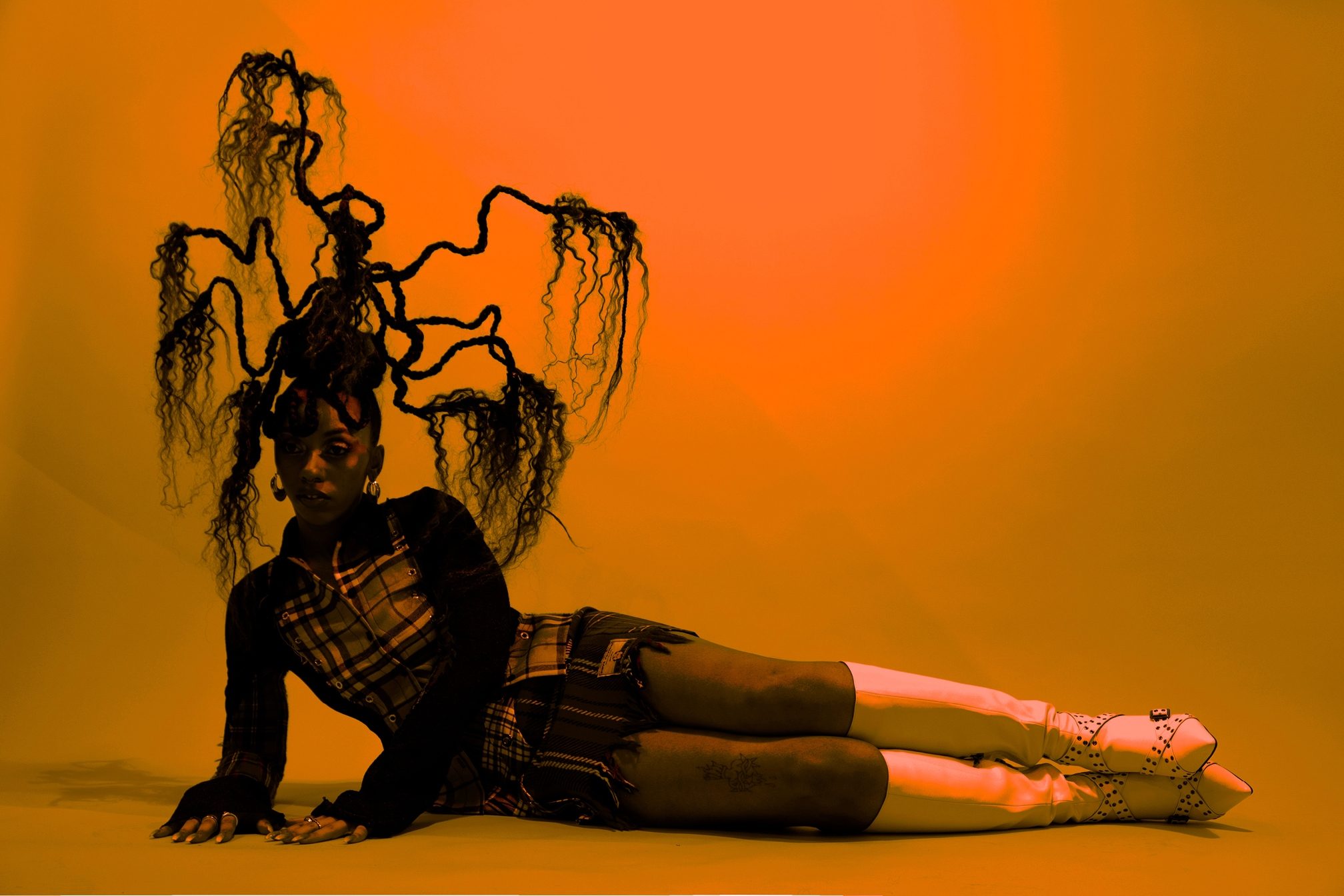
There's limitless pride that surrounds Nia. None greater than that from the pioneers of the genre and her mutual adoration as a studious devotee of the jungle scene. "When it came to my peers, I didn't really care about their opinions, and I still don't. I care way more about meeting legends like DJ Flight and DJ Storm, people like Shy FX and Roni Size. It’s been so crazy because I've literally watched all the documentaries. I know all their faces. I've listened to all their music, and the fact that they're supporting me means everything. When I meet elders I'm not trying to get them to listen to my music, I just want to listen to their stories and absorb as much knowledge as I can so that I can understand it so much. "
It's a co-sign and responsibility Nia doesn't take lightly. "The older junglists all say to me 'We've been waiting for you’ — which means so much to me. They say 'We're passing on the torch to you. You're the one that's going to push it forward'. I saw Mampi Swift the other day, and I was gassed. I love his music. He was like, 'You've actually inspired a lot of the older people, because we felt like we had to conform and make this polished drum ‘n’ bass and polished jungle, and listening to your tunes made us want to get back into it and make those earlier tunes we made at the beginning.' It's just cool to be the face of it and have so much support from the community. My ideal rave is older generations and younger people uniting because they both understand the music."
Read this next: The gentrification of jungle
It's going be the summer of jungle; Nia Archives has proclaimed the term. "You're going to hear so much jungle this summer. I'm excited about it."
So many people are jumping on the sound, but few are representing the culture as hard as Nia whilst being as innovative and skilled. "When I first started making this music in 2020, I had all these A&Rs saying, 'You are in such a unique position. There is literally no one in the same lane as you'. Over the past 18 months there are so many people doing what I'm doing it's actually crazy. I've even seen bare girls dance like me. People will always be inspired by what you do, and that's flattering, but I think being different is pretty cool."
There have been lazy comparisons to PinkPantheress and other women adjacent to drum ‘n’ bass doing it their own way. But while they all like a breakbeats, they’re female and fuelling a renaissance in a genre that’s been heavily dominated by dudes, each one is doing so in a different style and with a different motive and technical ability.
Offering up advice for the new generation of junglists, Nia states: "Just go for it. Be selfish, play the tunes you want to play and make the music you want to make. When you do it for yourself, that's when you make the most unique stuff."
"When jungle’s not the hottest sound a lot of these artists jumping on the zeitgiest will go on to the next thing, and I'll still be making jungle music. That's not to put anyone down, but I just hate that people jump on a sound but they don't take the time to learn and get to know the culture. Even when I won the award, I didn't plan it, but the first thing that came to mind was ‘Big up jungle, because I fucking love this music’. I'll always champion that." Rather than get heated and vexed, Nia shrugs off copycats as I turn the tape recorder off and winks. "People might copy my sauce, but it will never taste the same because they won't have the original recipe."
Nia Archives' 'Forbidden Feelingz' EP is out now, get it here
Tracy Kawalik is a freelance music and dance journalist, follow her on Twitter


